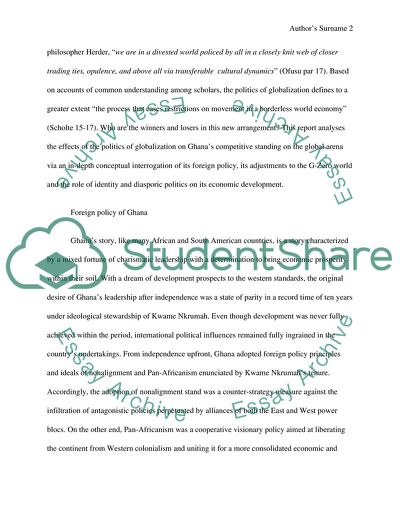Cite this document
(Globalization in the Context of Ghana Development Prospects Report Example | Topics and Well Written Essays - 1500 words, n.d.)
Globalization in the Context of Ghana Development Prospects Report Example | Topics and Well Written Essays - 1500 words. https://studentshare.org/politics/1781694-country-case
Globalization in the Context of Ghana Development Prospects Report Example | Topics and Well Written Essays - 1500 words. https://studentshare.org/politics/1781694-country-case
(Globalization in the Context of Ghana Development Prospects Report Example | Topics and Well Written Essays - 1500 Words)
Globalization in the Context of Ghana Development Prospects Report Example | Topics and Well Written Essays - 1500 Words. https://studentshare.org/politics/1781694-country-case.
Globalization in the Context of Ghana Development Prospects Report Example | Topics and Well Written Essays - 1500 Words. https://studentshare.org/politics/1781694-country-case.
“Globalization in the Context of Ghana Development Prospects Report Example | Topics and Well Written Essays - 1500 Words”. https://studentshare.org/politics/1781694-country-case.


